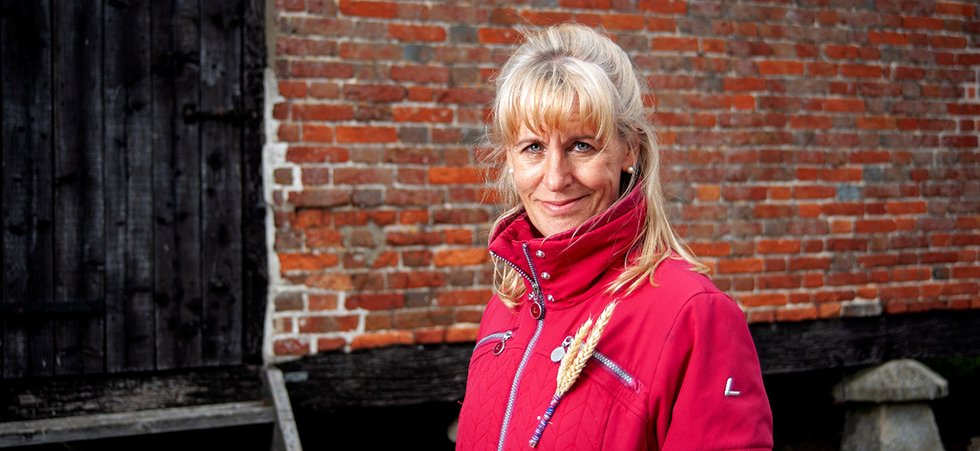“I am absolutely delighted that the Prime Minister has delivered on the commitment he made to NFU members last year to host this summit,” was the positive reaction of NFU president, Minette Batters following the first Farm to Fork Summit held at Number 10 Downing Street.
The farmers’ union said it hoped this meant a positive outlook for UK food security and demonstrated that domestic self-sufficiency is back on the political agenda.
Batters added: “The announcements made [today] show a recognition and an understanding of the strategic importance of British food and farming to the nation. And the actions recognise the importance of coordinated action across government to support confidence, investment and growth in British food.
“What we need now is to build on these announcements. We are calling for a set of core agri-food import standards for trade. Whilst it is pleasing government is looking to maintain self-sufficiency at 60%, we believe there’s an opportunity to produce much more of our own food here. We can and should be more ambitious and look to move beyond this target. Vitally, the Farm to Fork Summit should become an annual event, as our food supply is part of the UK’s national infrastructure and will ensure that food security never drops down the political agenda, across all parties, again.”
Scotland’s farmers
Speaking after attending the summit, NFU Scotland president Martin Kennedy said: “This summit must be viewed by the UK Government as the start of an annual process that recognises the importance of domestic food production and puts robust measures in place to ensure the whole food supply chain, from farm to fork, takes positive steps to address the significant shortfalls that we currently see around the nation’s food security.
“The event brought a sharp focus on the importance of domestic production and the need for change. All in the room needed to appreciate that recent events, including empty supermarket shelves, means that food can no longer be produced for prices that are below the cost of production.
“The solution is clear. If you’re looking to secure domestic food production, it starts by supporting the primary producer in the face of rising input costs and volatile output prices, poorly negotiated trade agreements and supply chain inequities.
“The commitment to a wider, accelerated use of the UK Agriculture Act to deliver fairness and equity in horticultural and egg supply chains, building on the work started on pigs and dairy, is something for us to welcome and pursue.
“The summit also presented an opportunity to raise the huge challenges we continue to face. A commitment that the 45,000 seasonal worker visas available this season could be extended is welcome, but our growers need long term commitment from the UK Government to this scheme to allow them to plan ahead. It also remains hugely disappointing that our farmers and growers will not benefit from the highest levels of relief on energy despite the huge costs now associated with rearing, growing and storing produce. That decision needs to be reversed or farmers and growers will simply cut production to limit losses and our food security will deteriorate, undermining the amount of good work today’s summit achieved.”
Poultry sector
British Free Range Egg Producers Association (BFREPA) CEO, Robert Gooch, said: “The announcement that the government will review fairness in the egg supply chain is a welcome development and one that BFREPA has been asking for over the past year.
“It is a necessary step. Free range producers have been trapped in a boom-and-bust cycle for years, primarily caused by unfair contracts which leaves their businesses carrying a huge amount of risk. The crisis seen in the sector over the past 12 months, as costs of production rocketed but prices paid to farmers stagnated, demonstrated why this intervention is needed.
“BFREPA will be ready to play an active role in the review when it begins, and hopes that the outcome is a fairer, more sustainable supply chain where consumers can choose a high-quality British product at a price which allows farmers to have the confidence to continue producing eggs.”
BPC chief executive, Richard Griffiths, said: “We welcome Government re-engaging with food issues at a time it matters more than ever. It is positive that we see recognition of the world-class production standards our members operate to, combined with a focus on overcoming trade barriers. This is a good starting point to be working from.”
“Poultry is half the meat the nation eats. There are still issues requiring Government to flex much-needed leadership, particularly towards exceptional market conditions. We look forward to hearing more detail and continuing our work with Government to ensure fair and resilient supply chains, where our members “have what they need” to fulfil their role in society.”
Griffiths added: “[Today’s] commitments must lead to real tangible change, where ‘food security’ translates into meaningful objectives that support British poultry meat producers in ensuring safe, affordable, nutritious, low impact food. Today has been a crucial first step towards building effective solutions with industry colleagues to prioritise a sustainable food system for all. We must now ensure that this doesn’t pivot into a sidestep around the big issues we are waiting for more detail on.”









